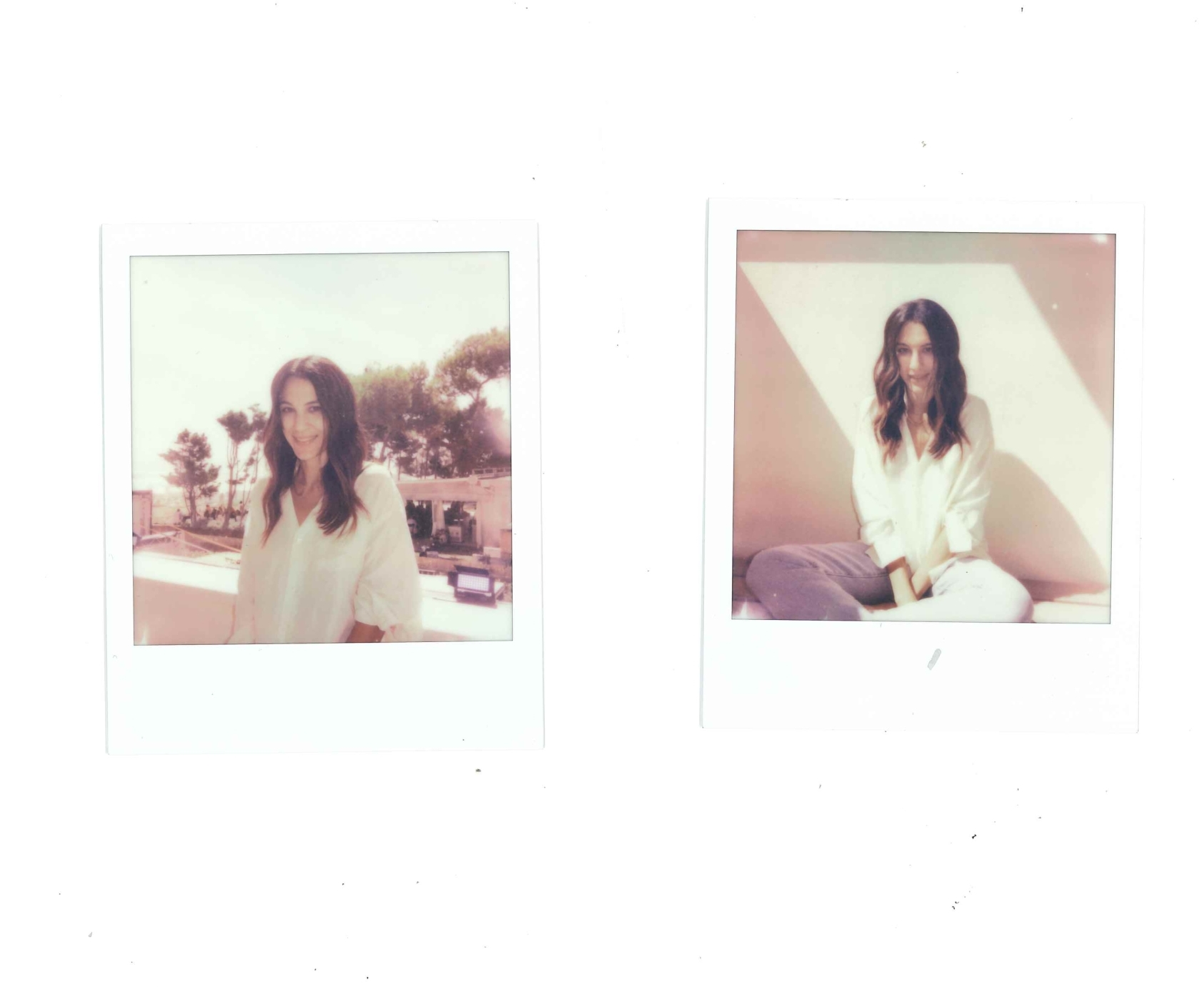
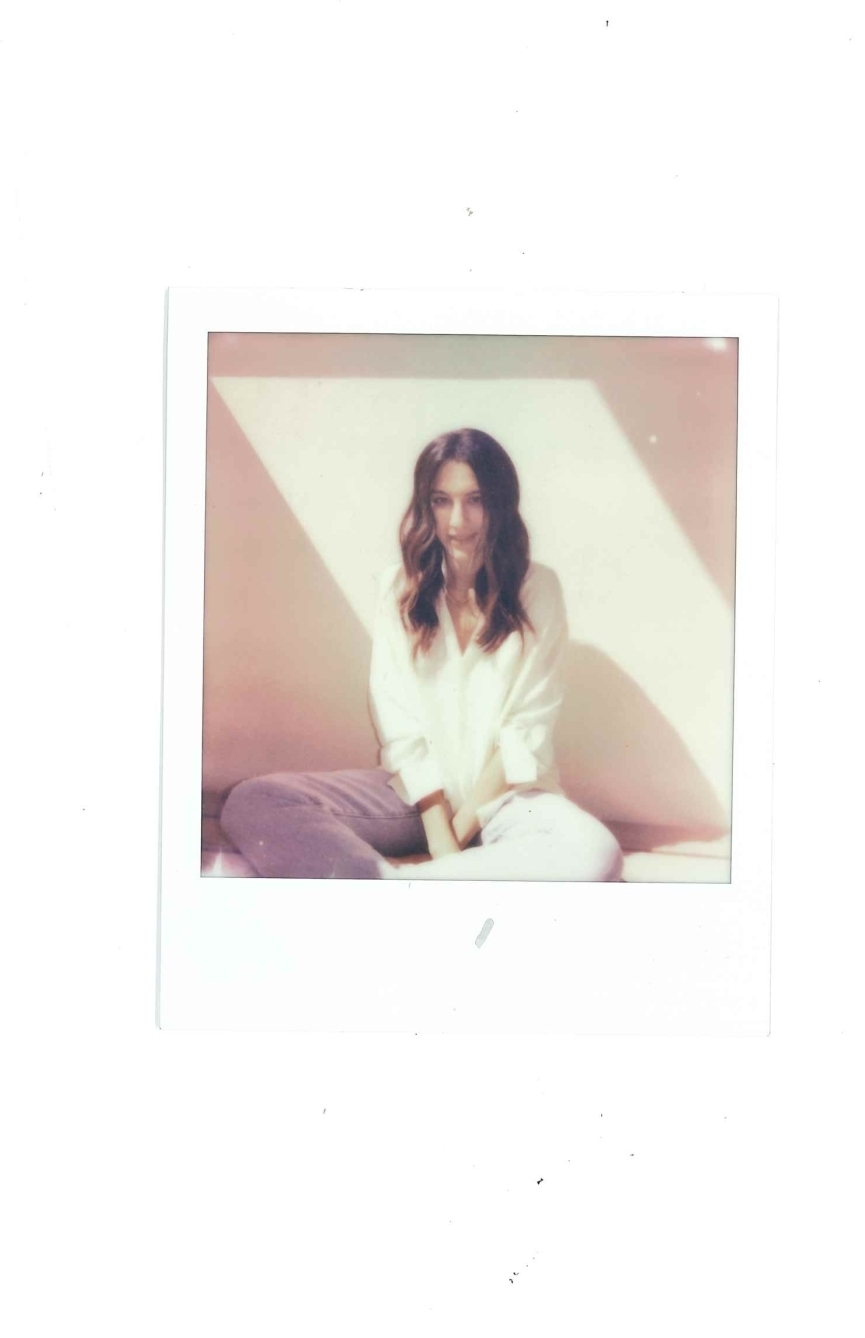
The Italian director sat down with us at the Venice Film Festival to discuss nostalgia, the beauty of a lie-filled Reddit forum, and the anxiety of showing audiences a new feature for the first time.
The first time I interviewed Carolina Cavalli was quite literally the first: the young Italian screenwriter and director—gearing up at the time to premiere her debut feature Amanda at the 2022 Venice Film Festival—was the first real interview I had ever conducted as a journalist, and I, she had mentioned, was the first person who had ever interviewed her too.
Cavalli was refreshingly uncouth and endearingly nervous during that first conversation (I maintain that I was, unfortunately, even more nervous and even more uncouth), so much so that she insisted that the interview take place over voice-notes on whatsapp rather than a phone call. “Am I talking too little?”, she asked after giving me a perfectly measured, perfectly articulated answer about the solace she finds in imagination. We discussed the significance of E.T., Pippi Longstocking, Italian folk hero Rosso Malpelo, and other childhood obsessions on her work (her whatsapp display image is and remains a picture of Baby Sinclair from the 90s kids TV show Dinosaurs). We also touched on being introverted in an industry of intense networking, self-branding and on-set collaboration. “What I always tell myself to make me feel better about being an introvert in this industry is that introverts find the energy within themselves and then let that energy dissipate when it’s no longer needed, while extroverts need other people for energy [laughs]. So we’re not that bad I guess!”
A few days ago I found myself lucky enough to interview Cavalli at this year’s Biennale for her second feature The Kidnapping of Arabella, which follows aimless twenty-something Holly (Benedetta Porcaroli) who, after a chance meeting with seven year-old Arabella (Lucrezia Guglielmino), convinces herself that the child is herself from a different life. Arabella, wanting to run away from her caring but work-obsessed politician father (Chris Pine, in a surprising role that sees him perform in perfect Italian), sneakily tells Holly that she indeed is her younger variant, and encourages her to take her away in her car. Moments later, the two have driven off into the night—the beginning of a 24 hour adventure of self discovery.
Cavalli is two features deep and at this point has done dozens upon dozens of interviews and public Q&As, but refreshingly still maintains the bashfulness of that first interview, playing with her hair, leaning forward and backward in her seat and grinning shyly during answers. She’s introducing her movie to a crowd of thousands later. “I’m terrified of public speaking!”, she tells me.
But Cavalli’s confidence shines through in the only place it really counts: the movies themselves. A screenwriter first and foremost, her writing is sharp, self-aware, nostalgic but, crucially, not overbearingly so. As a director she creates stories that feel at once lived in and ever-so-slightly detached from reality, embracing, as she puts it, the absurdity of daily life. She encourages fantastic performances from her cast, including young Guglielmino, who she directs with more efficiency than many seasoned directors can with child actors. Watching her films leaves no doubt whatsoever as to why A-listers like Pine and, in Italy, Porcaroli, yearn to be a part of her off-beat cinematic worlds. “I didn’t go to film school,” she says. “Everything I learned about filmmaking was by watching the work of other directors. In that sense I was more prepared.”
Below, I sit down with Cavalli to discuss nostalgia, the beauty of a lie-filled Reddit forum, and the anxiety of debuting The Kidnapping of Arabella the Venice Film Festival.
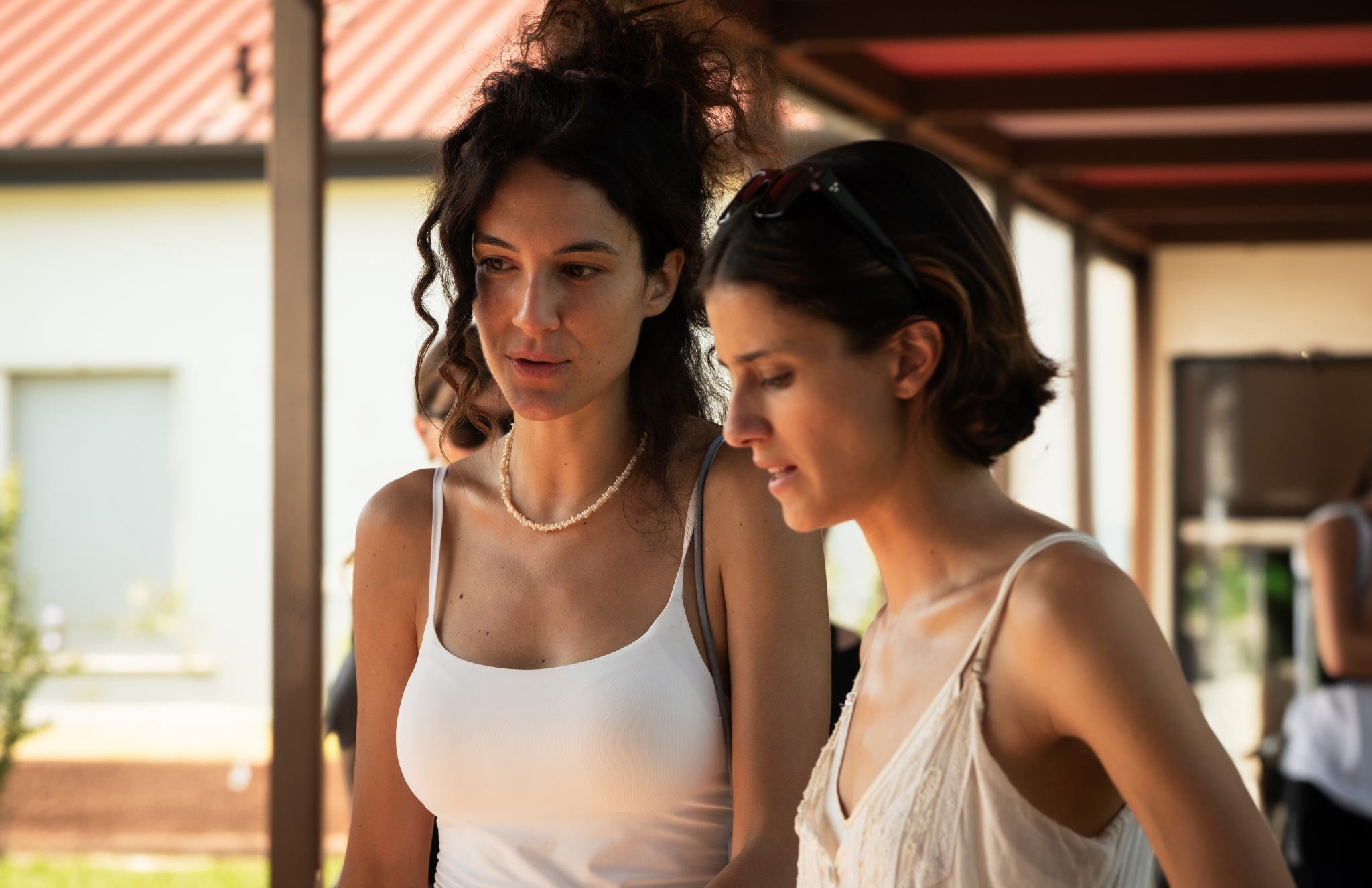
Director Carolina Cavalli and Benedetta Porcaroli on set of The Kidnapping of Arabella (2025).
Luke Georgiades: It’s great to chat to you again. So much has changed for you—how are you feeling?
Carolina Cavalli: I don’t know how I feel right now, Luke. I feel confused in general [laughs].
LG: About what?
CC: I thought it would get better with my second film—you’re less stressed, there’s less anxiety—but it hasn’t improved for me [laughs].
LG: You obviously released your debut feature a few years ago to a really positive response. Going into your second feature, what feels different, what have you learned about the process?
CC: Even being here with my second film, I feel I’ve lost my innocence in a way. When I was writing and directing this film I was feeling excited, but as soon as the film was done I started to feel much more nervous this time.
LG: Because it becomes real?
CC: Yes. The first time you don’t know that. You don’t know how it is to show people what you’ve done. Now I know. The premiere was yesterday, and after that I thought I would feel calm. But I still feel on edge.
LG: Do you check reviews or look at the responses to your movies?
CC: No, no. Of course, when you have a screening people come to you and they’re not going to tell you to your face that they hated your film. So in order to read between the lines you need strategies, like when they tell you ‘oh, the music was amazing!’ it means they didn’t like the film [laughs]. Yesterday everyone seemed quite happy, but I didn’t enjoy watching the film on this occasion. I still haven’t felt the relief yet. Not at all.
LG: Writing is obviously your first love — I wonder what kind of nourishment filmmaking gives you that you feel is unique to filmmaking?
CC: I write by myself, so I spent a lot of time alone. With cinema, I’m constantly around people. Writing is free from the real elements of life. But I think I become more creative during the filmmaking process, because during that process there are things that reality must influence—location, budgets, things that force you to find creative solutions. I hate working under pressure, I get stressed very easily. But when you’re forced to it can bring out the best in you.
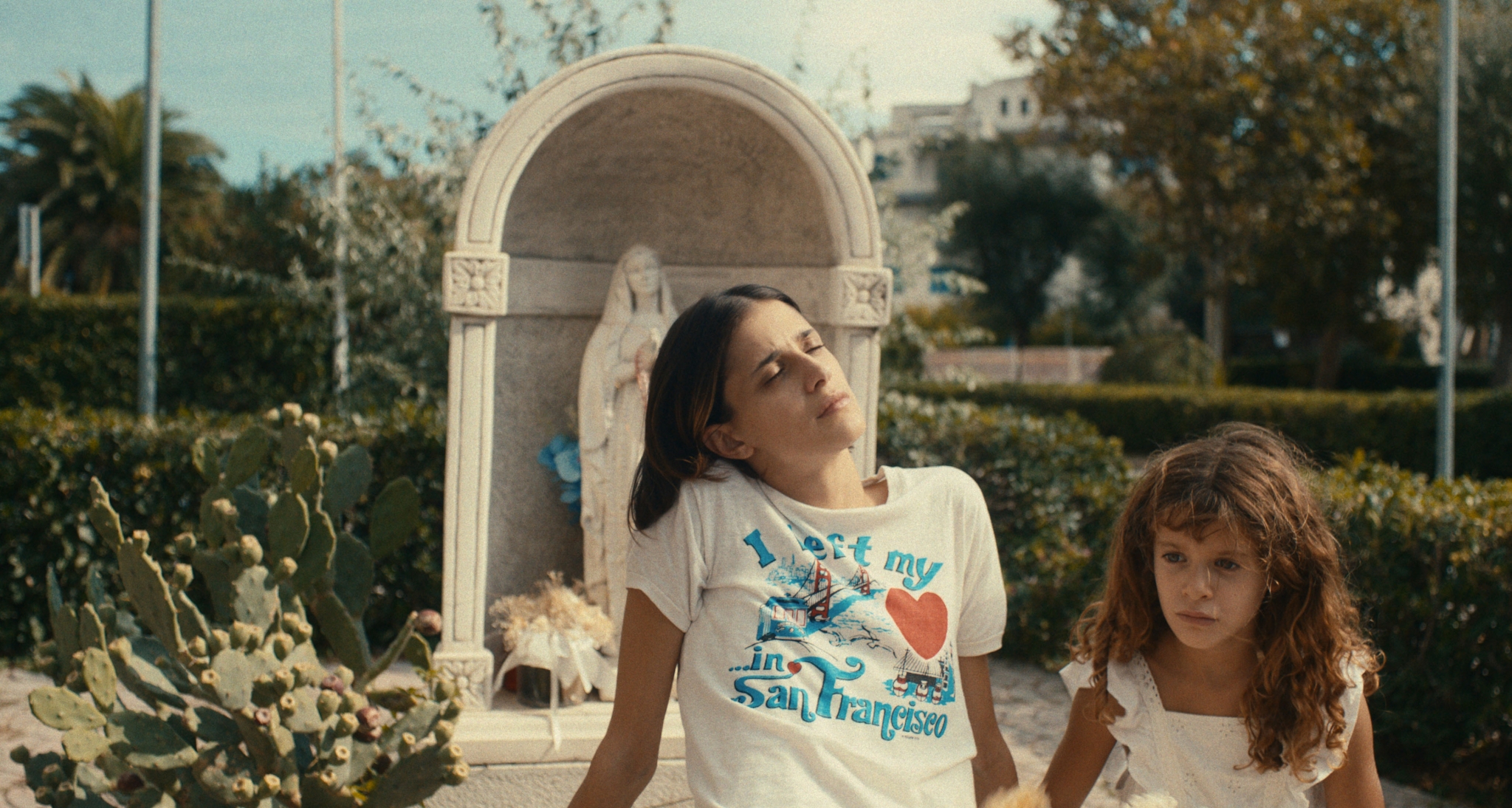
The Kidnapping of Arabella (dir. Carolina Cavalli, 2025)
LG: During our first interview you said “I prefer to keep life and imagination separate, with a greater preference for the latter.” Do you still feel that way?
CC: It’s a little different now. I always felt that living in my imagination gave me solace. As I grow older, I feel a strange sense of guilt in the fact that by living in my imagination I can’t have an effect in the real world. I have to remind myself that films can, in fact, impact the world in a very real way.
LG: I always found it very interesting that you had such an interesting relationship with those childhood obsessions we used to have. I know that was key to Amanda, do you find that it seeped its way into this film as well?
CC: Yes, and that’s one of the aspects of the main character who I think isn’t just unhappy with who she became as an adult but is unhappy that she became an adult at all. It’s a form of nostalgia, but it’s a kind of nostalgia that needs to be overcome.
LG: How do you feel about nostalgia? Your films recognise nostalgia as a phenomenon but they don’t indulge too deeply in it themselves.
CC: Nostalgia is something I associate with melancholy, so all the melancholic elements in the film have tinges of childhood. Often in childhood, there’s this feeling of possibility. All the possibilities in the world feel available to you. Slowly, life becomes more real, and those possibilities feel like they’re starting to slip away. I think the nostalgia comes from that feeling of imagining those possibilities again—imagining a thousand lives.
LG: I wonder if that’s something that comes from being a part of the post internet generation. Because I know one of the inspirations for this film came from you browsing Reddit.
CC: I often go on forums online! I like reading other people’s stories, and I feel that people are very open on forums, even if they’re lying. Sometimes lies are so beautifully written. So honest. People ask very honest, existential, human questions, and in some cases I found very elaborate and fantastical, almost science-fiction, answers. Why can’t we be fully present in the world? Why can’t we connect to other people? There were posts about being in different dimensions, or being lost in a life that isn’t your own. That’s interesting to me, and it’s similar to what Holly thinks she is experiencing in this film.
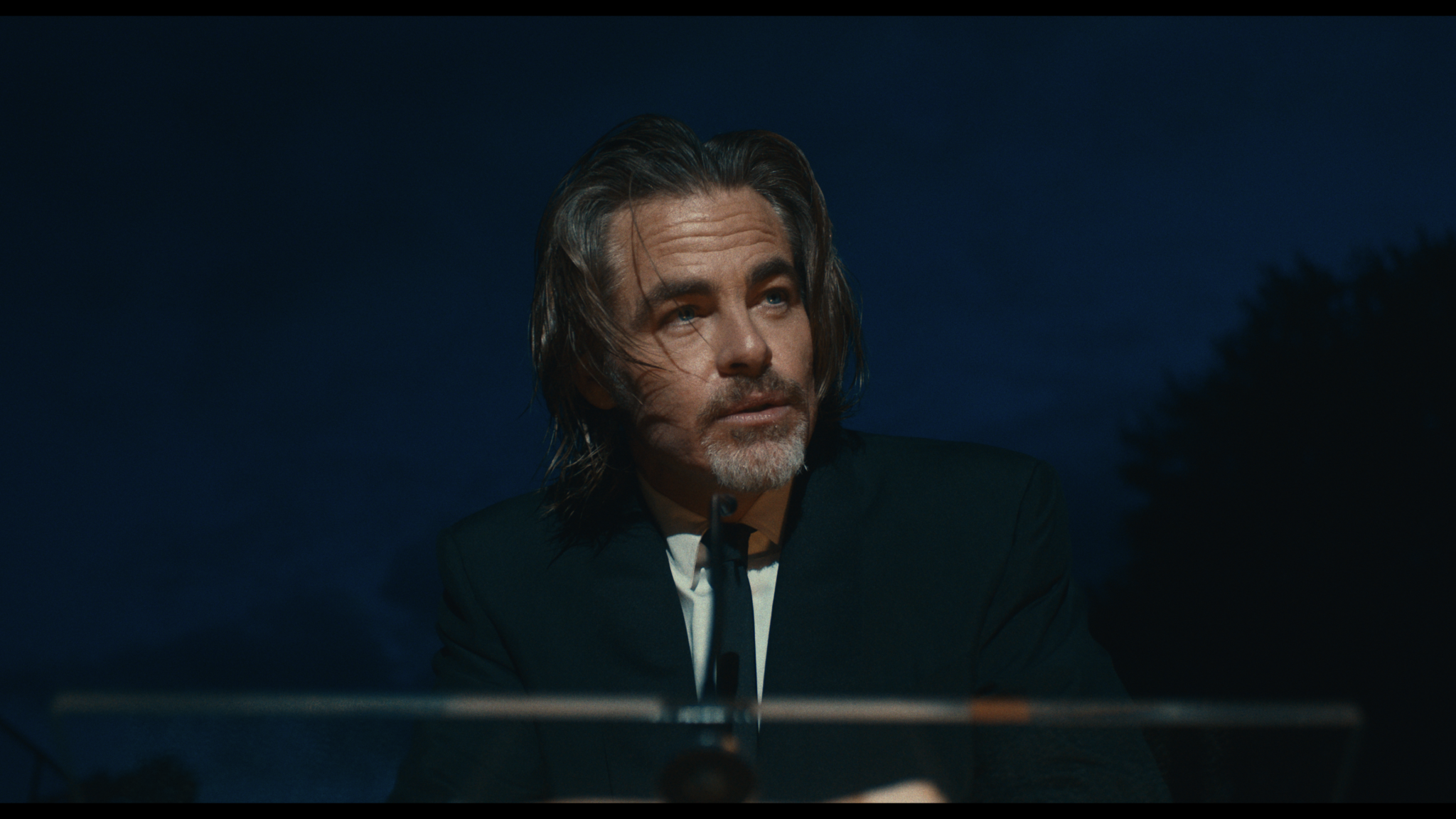
Chis Pine in The Kidnapping of Arabella (dir. Carolina Cavalli, 2025)
LG: You said previously that “Holly belongs to a group of people, perhaps a generation, afraid that life is always happening somewhere else.” I wonder why you think that might be a unique experience for a specific generation and where that came from?
CC: it’s accentuated for our generation. Now we’re always invited to be the best versions of ourselves. We’re always looking at other people’s lives. We see them spending money to get a bigger life and a better self, and we want to promote ourselves too. That definitely has an impact on our perception of our place in the world.
LG: I wonder if the internet is also an influence on the absurdity of your films.
CC: It’s a tone I’ve always loved. I’ve always loved memes, not the ones my Dad sends. And I love the absurdity of daily life. I enjoy awkwardness very much.
LG: Chris Pine obviously has some knowledge of the Italian language, but I wonder if there’s anything you had to teach him to actually play Italian in the film?
CC: Chris spends a lot of time in Italy. In the film he’s not an Italian character, so there was no need for him to fully embody the culture. But yes, it was surprising. It’s one thing to speak Italian and another thing to act in a second language. I was very impressed.
LG: Some directors have a knack for working with child actors, and you can tell when other directors don’t. I wonder if there’s a key to approaching that process, because Lucrezia brings so much to her performance here.
CC: I didn’t shy away from giving her responsibility. I wanted her to be very aware that she is acting as a character who is not just herself. This is a story. I wanted her to know that when something happened in the story, then a reaction should be happening within her. This was all a surprise, because I don’t have much contact with kids that age in general. I realised how natural storytelling comes to them. They know what a character is. I could speak to her as if she was any other actress.
LG: Were you much like Arabella when you were younger?
CC: I consider myself as having had a happy childhood, but like Arabella, I remember wanting to run away. I don’t remember why. I was much shyer than her.
LG: Your characters aren’t necessarily avatars for you.
CC: For sure. We can only feel and see our own personal inner lives, so there’s an element of those characters that must, of course, be taken from myself, but beyond that I like to explore what else is out there.





